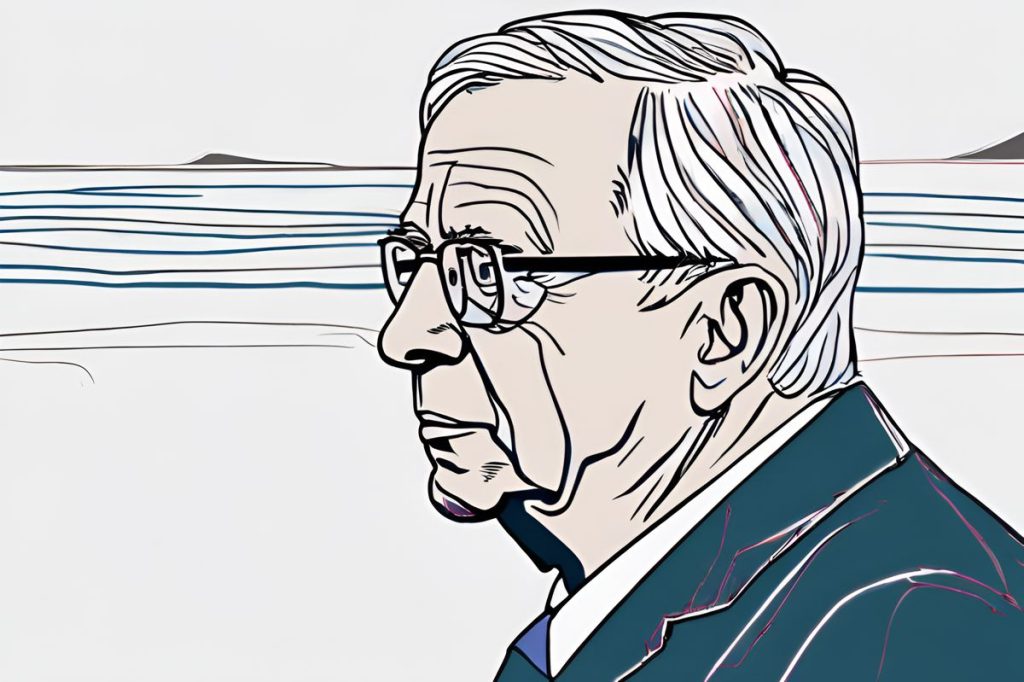Former European Commission President Jean-Claude Juncker believes the EU should support Cyprus’s settlement efforts, blaming the Greek Cypriot side for the deadlock at Crans-Montana talks. Despite recognizing President Christodoulides’ reinitiation efforts, Juncker emphasizes Turkey’s crucial role in negotiations and maintains hope for progress in future serious talks.
What is Jean-Claude Juncker’s opinion on the Cyprus issue and Crans-Montana talks?
Jean-Claude Juncker believes the EU should support Cyprus’s settlement efforts and that the Greek Cypriot side contributed to the deadlock at Crans-Montana talks. He recognizes President Christodoulides’ reinitiation efforts and emphasizes Turkey’s significant role in the negotiations. Juncker maintains hope for progress in future serious negotiations.
Juncker’s Reflections on the Cyprus Issue
Former European Commission President Jean-Claude Juncker has expressed his personal take on the Cyprus issue, particularly addressing the stalled Crans-Montana talks of 2017. Government officials have categorized these statements as strictly his own opinion. Juncker has a history of involvement in the Cyprus negotiations and has been vocal about the EU’s potential role in achieving a settlement.
The government spokesperson, Konstantinos Letymbiotis, pointed out that Juncker acknowledges the potential for a Cyprus resolution, emphasizing the EU’s supportive role and the efforts of President Nikos Christodoulides to reinitiate dialogue. These comments come as the UN Special Envoy for Cyprus, Maria Angela Holguin, prepares to update the UN Secretary-General on the situation, discussing forthcoming steps in the complex negotiation process.
Juncker’s Insights and Cyprus’ Response
Juncker, in his interview marking the 20th anniversary of Cyprus’ accession to the EU, spoke highly of Christodoulides, describing him as a man of goodwill. Despite praising the efforts of various leaders, Juncker pinpointed the Greek Cypriot side as a key factor in the deadlock at Crans-Montana. He suggested that more should have been done to seize the moment for a resolution.
Juncker’s reflections also outlined his interactions with Turkish President Recep Tayyip Erdogan, observing a shift in Erdogan’s stance over time. Juncker’s characterization of the northern part of Cyprus and the influence of Turkey highlights the complexities facing negotiations. Additionally, he commended the Cypriot people’s handling of the financial crisis and criticized the ‘golden passport’ scheme, advocating for maintaining sovereignty.
Prospects for a Settlement and the EU’s Role
While Juncker asserts that the European Union should play a part in the resolution, he clarifies that it cannot independently initiate actions. The EU’s position as an intermediary in the Cyprus-Greece-Turkey triangle could prove instrumental in moving forward. Moreover, Juncker’s acknowledgment of Cypriot youth’s detachment from the issue sheds light on the changing social landscape, which might affect future negotiations.
Stressing the significance of Turkey’s involvement, Juncker pointed out that Erdogan possesses the ability to make conclusive decisions for the northern part of the island. This influence is seen as a discomforting factor for the EU, which desires a more neutral negotiation lead. Juncker’s statements conclude with a sentiment of hope, emphasizing the preparatory nature of the current phase and suggesting that the time for serious negotiations will come.
Cyprus’ Handling of the Financial Crisis
Reflecting on Cyprus’ journey through the financial crisis, Juncker praised the resilience and success of the country in managing the situation. He touched upon the initial hardships faced by Cyprus in Eurogroup discussions but lauded the nation’s ability to take control of its destiny. Highlighting the unjust treatment of the Cypriot people during the crisis, Juncker affirmed that they have reasons to be proud of their current status as a ‘safe country’.
The government’s response to Juncker’s remarks on the Cyprus issue appears to be measured, emphasizing the forward-looking approach of President Christodoulides and the continued efforts to engage with the UN and other stakeholders. The statements by Juncker serve as a reminder of the persistent challenges in the negotiations and the importance of collective efforts to reach a lasting solution.
What is Jean-Claude Juncker’s opinion on the Cyprus issue and Crans-Montana talks?
Jean-Claude Juncker believes the EU should support Cyprus’s settlement efforts and that the Greek Cypriot side contributed to the deadlock at Crans-Montana talks. He recognizes President Christodoulides’ reinitiation efforts and emphasizes Turkey’s significant role in the negotiations. Juncker maintains hope for progress in future serious negotiations.
What are Juncker’s insights on the Cyprus issue and how did Cyprus respond?
Juncker has expressed his personal take on the Cyprus issue, particularly addressing the stalled Crans-Montana talks of 2017. While his reflections pointed out the Greek Cypriot side’s role in the deadlock, he also highlighted the efforts of President Christodoulides to reinitiate dialogue. Cyprus has responded by emphasizing its forward-looking approach and continued engagement with the UN and other stakeholders.
What are the prospects for a settlement in Cyprus and what role does the EU play?
Juncker believes the EU should assist in the Cyprus resolution but cannot independently initiate actions. He stresses the importance of Turkey’s involvement and the need for a neutral negotiation lead. Despite challenges, Juncker remains hopeful for serious negotiations in the future. The EU’s role as an intermediary in the Cyprus-Greece-Turkey triangle could be instrumental in moving forward.
How did Juncker view Cyprus’ handling of the financial crisis, and what impact does it have on the current situation?
Reflecting on Cyprus’ journey through the financial crisis, Juncker praised the nation’s resilience and success in managing the situation. He highlighted the unjust treatment during Eurogroup discussions but commended Cyprus for taking control of its destiny. This positive view of Cyprus’s financial recovery adds to the overall context of current negotiations and the country’s standing in international affairs.

